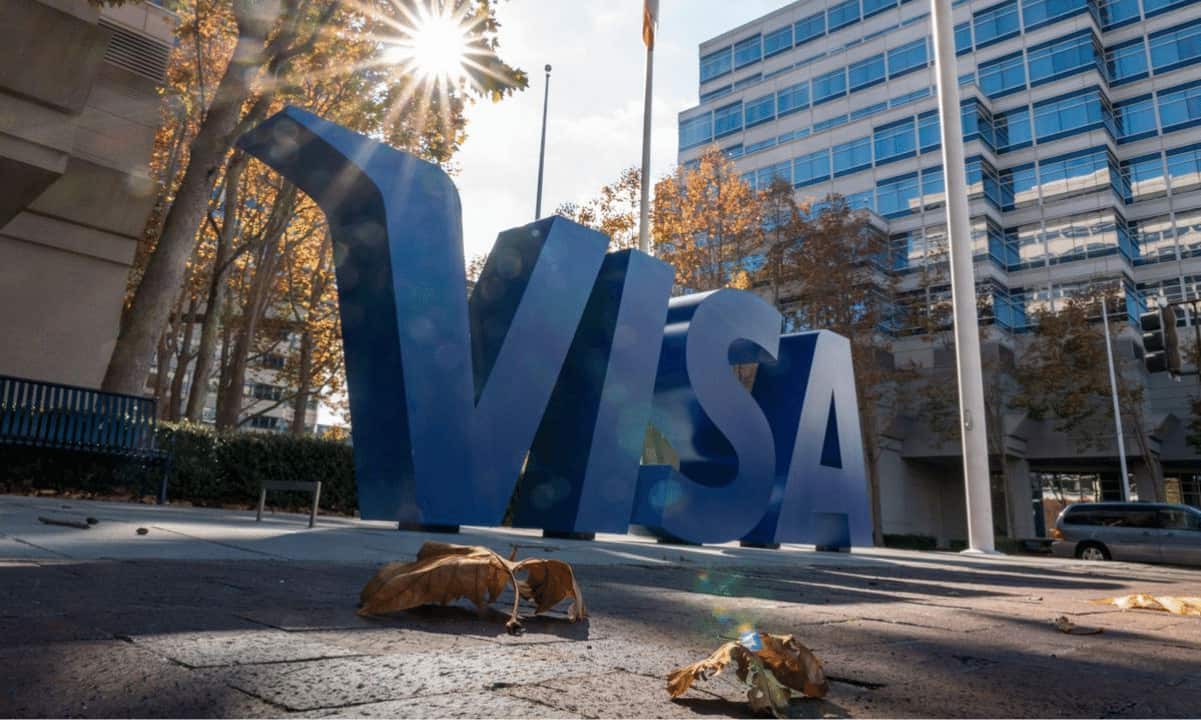The CEO of the world’s largest credit card company told shareholders on Tuesday that stablecoins and central bank digital currencies (CBDCs) will play a “meaningful role” in the payments space going forward.
The company also published its 2022 annual report, in which it wrote about its simultaneously complementary and competitive relationship with cryptocurrencies.
Visa’s Crypto Outlook
As explained by CEO Alfred Kelly during a conference call, Visa already has “multiple initiatives” underway in the blockchain space, and has invested many crypto funds and companies already.
“It’s very early days, but we continue to believe that stablecoins and central bank digital currencies have the potential to play a meaningful role in the payments space,” said Kelly.
Stablecoins combine the peer-to-peer nature of cryptocurrencies like Bitcoin with the relative price stability of another currency or asset – frequently the U.S. dollar. This solves for the price instability problem that critics – including central banks – claim prevents Bitcoin from being a legitimate currency.
Tether (USDT), which is the largest stablecoin by market cap, has a higher daily transaction volume than any other crypto.
Meanwhile, CBDCs are a government-issued currency in digital form, built upon blockchain rails. Federal Reserve vice chair Lael Brainard has shown support for launching a CBDC in the United States by providing a “safe central bank liability in the digital financial ecosystem.”
Last year, Visa formed a partnership with ConsenSys to onramp CBDCs to existing payment networks.
In its report, Visa said it is “developing or participating in alternative payments systems or products,” that could potentially disintermediate its role, some of which include “stablecoin-based payments initiatives.”
In a section titled “Competition,” Visa named “Digital Wallet Providers” and Alternative Payments Providers” among them, the latter of which included “cryptocurrency platforms.” While these venues are primarily focused on e-commerce and mobile payments right now, the company expects them to “expand their offerings to the physical point of sale.”
“Technology and innovation are shifting consumer habits and driving growth opportunities in ecommerce, mobile payments, blockchain technology and digital currencies,” the company stated, adding that crypto payment platforms “can be both a partner and a competitor to Visa.”
Reputational Harm
Cryptocurrencies pose not only technological threats and opportunities for Visa, but reputational ones too. The company’s report claimed its brand could be negatively impacted when its services are used for “legal, but controversial” products like cryptocurrencies, equating them to “adult content” and “gambling” in this regard.
A month before FTX went bankrupt, Visa planned a partnership with the exchange to provide a crypto debit card in 40 countries. The program was terminated shortly after the collapse.
Binance Free $100 (Exclusive): Use this link to register and receive $100 free and 10% off fees on Binance Futures first month (terms).
PrimeXBT Special Offer: Use this link to register & enter POTATO50 code to receive up to $7,000 on your deposits.














